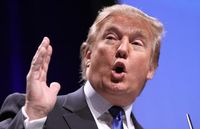NVIDIA Corporation (NASDAQ:NVDA) is gearing up to release a downgraded version of its H20 artificial intelligence chip in China within the next two months, as the company adapts to stricter U.S. export restrictions. This move, reported by Reuters on May 9, 2025, is seen as a critical step for NVIDIA to maintain its foothold in one of its most significant markets.
The H20 chip, which has been regarded as the most powerful AI chip that NVIDIA is permitted to sell in China under current Biden-era export controls, has faced increasing scrutiny. Recent signals from the Trump administration have indicated even tighter controls on technology exports to China, necessitating a license for NVIDIA to export the chip.
In a bid to comply with these regulations, NVIDIA plans to downgrade the H20 chip, reducing its computing power and slashing its memory capacity. This strategy is expected to help the company navigate the new controls while still providing a product to Chinese customers. Sources familiar with the matter have confirmed that NVIDIA has already informed several major Chinese clients, including leading cloud computing service providers, about the upcoming release of the modified chip.
The H20 chip plays a crucial role in China's AI development landscape, being utilized by a wide range of companies, from AI startups like DeepSeek to major internet firms such as Baidu (NASDAQ:BIDU) and Alibaba (NYSE:BABA). However, the downgrade raises concerns about the chip's competitiveness in the Chinese market, particularly as domestic developers like Huawei ramp up their own AI chip production.
China has been a significant revenue source for NVIDIA, accounting for approximately $17 billion, or 13% of the company’s total sales, in the fiscal year ending January 2025. NVIDIA CEO Jensen Huang has publicly acknowledged the importance of the Chinese market, having visited Beijing in April 2025, shortly after U.S. officials communicated the new export license requirements.
The situation is further complicated by the ongoing geopolitical tensions and trade restrictions between the U.S. and China. Since 2022, the U.S. has imposed restrictions on the export of NVIDIA's most advanced chips to China, citing concerns over potential military applications. The H20 was introduced after Washington tightened export controls in October 2023, reflecting the growing apprehension about advanced technology reaching Chinese hands.
In light of these developments, NVIDIA's stock has seen fluctuations, particularly following news of the export rule changes. Shares rose 3% after the Trump administration announced plans to roll back proposed regulations on AI chip exports to certain countries, including India, Switzerland, Mexico, and Israel. This change may potentially ease restrictions for NVIDIA and other tech companies looking to expand their international reach.
Despite the rollback of some restrictions, the Biden administration's original intent was to prevent advanced chips from falling into the hands of adversaries, particularly China. NVIDIA had previously criticized the AI export rule as misguided, emphasizing the need for a balanced approach that allows American companies to compete globally while safeguarding sensitive technology.
As NVIDIA navigates these regulatory waters, the company is also preparing for increased competition from Chinese firms. With the demand for cost-effective AI models surging, companies like Tencent, Alibaba, and ByteDance have ramped up their orders for the H20 chip, reflecting a robust market appetite. According to reports, NVIDIA had accumulated $18 billion worth of H20 orders since January 2025, showcasing the chip's popularity despite the impending downgrade.
Looking ahead, the U.S. government is expected to provide new guidance on AI exports in the coming months, which could reshape the landscape for tech companies operating in China. As President Trump prepares for a Middle East visit starting May 12, 2025, discussions around advanced chip restrictions may play a pivotal role in shaping future export policies.
In summary, NVIDIA's decision to downgrade its H20 chip for the Chinese market is a strategic response to evolving U.S. export regulations. While this move may help the company retain its market presence, it also highlights the challenges posed by domestic competition and international trade dynamics. As the landscape continues to shift, NVIDIA's efforts to adapt will be closely watched by industry stakeholders and analysts alike.

